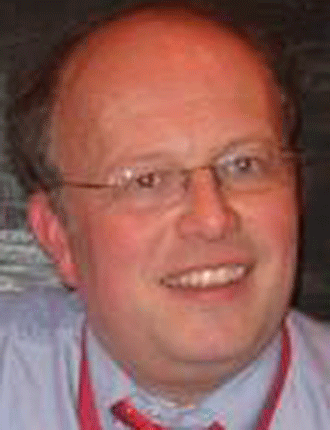July
Experts collaborate to crack difficult disease areas

Leading academics at Newcastle University are part of a multi-million pound collaboration to improve scientists’ understanding of inflammatory diseases such as Chronic Obstructive Pulmonary Diseases and fibrosis.
The Experimental Medicine Initiative to Explore New Therapies (EMINENT) network will study the fundamental biological mechanisms responsible for a range of inflammatory diseases that are a serious burden to patients.
The Medical Research Council and healthcare company GlaxoSmithKline (GSK) are spearheading the £8m project which involves researchers from the universities of Newcastle, Cambridge, Glasgow, Imperial College London, University College London and GSK.
It is hoped that by combining the disease biology expertise of the academic scientists with GSK’s drug development expertise and resources it will lead to breakthroughs in understanding what could accelerate the development of new treatments for patients.
Professor Dave Jones (pictured), an expert in liver immunology, is leading Newcastle University’s part of the EMINENT study.
He said: “Newcastle University alongside Newcastle Hospitals NHS Foundation Trust carry out world-class research in areas such as lung disease and fibrosis, translating it into therapies for the benefit of patients with diseases such as COPD, chronic liver and kidney disease.
“Working with world-class companies such as GSK is a critical part of what we do. The EMINENT programme is an extremely exciting development and will allow us to take further strides towards the development of ‘real-life’ treatments and, critically, take them through into practice."
Improving the success rate for new treatments
Drug development is a lengthy, costly and risky process, with the majority of treatments failing in clinical trials and never reaching patients as medicines, this is because the biological processes that underlie many diseases are still not fully understood.
By gaining a better understanding of the inflammatory process in diseases, the collaboration aims to improve the success rate for discovering new treatments for a variety of conditions.
Minister for Life Sciences, George Freeman, said: “Networks of biomedical researchers from hospitals, industry and universities are key to unlocking the biomedical breakthroughs that are transforming our understanding of the mechanisms of disease and developing new diagnostics and treatments for patients.”
Information and new discoveries will be communicated promptly across the network and beyond, enabling breakthroughs in understanding to be applied across a spectrum of diseases, maximising the potential of the initiative to bring real benefits to patients.
Professor Sir John Savill, Chief Executive at the Medical Research Council, said: “Despite major progress made over the last 20 years in many disease areas, some hard-to-treat conditions still carry high morbidity and mortality.
“Addressing these challenges successfully requires close, flexible, collaboration across a range of disciplines with complementary methodological expertise and disease understanding which is why initiatives such as this are so important to the MRC. We believe this innovative approach could be applied in other areas to combine the work of academia and industry.”
The EMINENT network will support the academic costs and these will be matched with GSK in-kind contributions, including access to a portfolio of currently available medicines, experimental compounds, screening facilities and the company’s drug discovery and development in-house expertise.
The initiative aims to support up to 10 experimental medicine projects over five years. The academic research teams that are awarded funding will work alongside their industry colleagues at both GSK and university facilities, with a view to building a legacy of expertise in translational and experimental human research across academia and industry. The MRC anticipates that the network will grow beyond the first five academic partners.
An independent panel of experts will assess the applications submitted by EMINENT collaborators. Projects will be assessed against the same criteria as any other MRC-funded research, based on the quality of the science.
Patrick Vallance, GSK’s president of pharmaceuticals Research & Development, said: “At GSK, we believe we have much to learn from scientists outside our own walls and vice-versa.
"By sharing our resources and research during the early stages of research we can stimulate innovation within the scientific community, strengthen our understanding of human disease and accelerate the development of new treatments for patients. We need to embrace opportunities to work together and share information about our successes and failures.
“The MRC’s EMINENT initiative is a great way for us to do precisely this, allowing us to work alongside scientists from five top UK universities to drive forward our collective understanding of inflammatory disease, and we’re confident this unique approach will make us better able to develop innovative new treatments in the future.”
Press release adapted with thanks from the Medical Research Council.
published on: 15 July 2015
